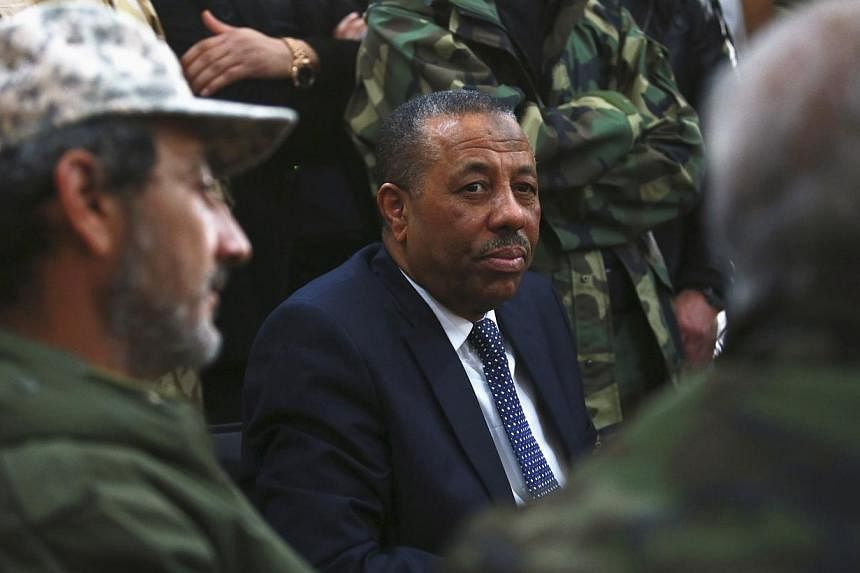BENGHAZI, Libya (REUTERS) - Airport guards stopped Libya's Prime Minister Abdullah al-Thinni from getting on a plane to Tunis in protest against his choice of interior minister, officials said, in a stark demonstration of the collapse of state authority in the oil producer.
The guards were demanding the job go to a southerner, instead of the current western holder, illustrating the regional and political divisions that have plagued the North African country since the ousting of Muammar Gaddafi four years ago.
Thinni's internationally-recognised government is also fighting Islamist insurgents and has been holed up in the small eastern city of Bayda since an armed group seized the capital Tripoli in August and set up a rival administration.
Thinni and a senior delegation were meant to fly to Tunis late on Wednesday but guards at the eastern Labraq airport prevented him from boarding his plane, airport and government officials told Reuters.
He later returned to his base, they said.
The guards were unhappy with Thinni's appointment of economy minister Munir Ali Asr as caretaker interior minister, the officials added, asking not to be named.
Thinni's government has struggled to make an impact with his Cabinet working out of hotels in Bayda, 1,200km east of Tripoli.
Ministers and key state bodies such as a grain distribution agency in Tripoli are under the control of the rival government which has been boycotted by world powers.
Both sides are allied to former rebel groups who helped topple Gaddafi in 2011 but now fight for power, resources and territory. Both have attacked each other with war planes and fought over oil facilities.
Thinni had to appoint a new interior minister after suspending Omar al-Zanki for making public statements about another potentially embarrassing division, saying army general Khalifa Haftar had tried to stop the premier from visiting the eastern city of Benghazi, government officials have said.
Haftar's aides had said that inspecting troops in his eastern stronghold was his job, not the prime minister's, according to the officials.
Haftar started his own military campaign against Islamist militants in May before allying himself with the recognised government. He was appointed top army commander this week.

